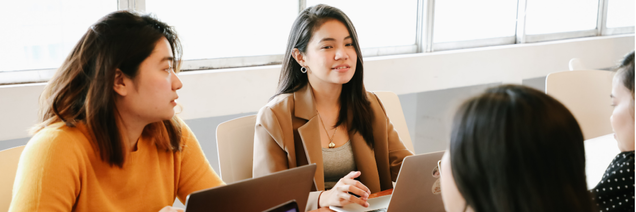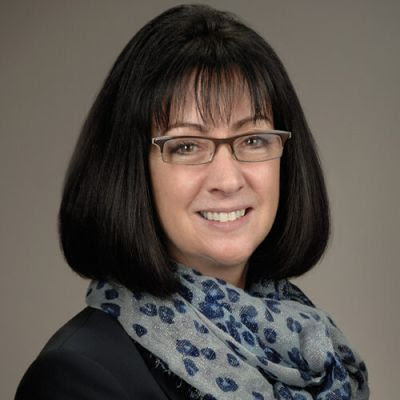Research Revealed: Celebrating the Space for Discovery, Career Workshops, and More
October 2022 | Information & Support for the BU Research Community
Collaborate

COLLABORATION IN ACTION
In the five years since the launch of the Kilachand Fund, and the opening of the Kilachand Center for Integrated Life Sciences and Engineering, the $100 million interdisciplinary research fund has advanced work on science’s biggest challenges.
In 2017, BU trustee Rajen Kilachand made a historic gift of $115 million dollars to enable interdisciplinary work. Since its launch, the fund has awarded $12 million dollars to projects that have advanced science, established collaborative structures for cross-collaborative research, and expanded educational and funding opportunities. Learn more about the impact of the projects.
Find Funding

Early Career Workshop: Young investigator awards provide critical support to early career faculty, often serving as a funding bridge between postdoctoral years and fully independent investigator status. To give BU’s young investigators valuable insights about how to secure these competitive awards, we are convening a panel on December 1 of early career funding program managers from federal agencies and foundations.
Ignition Awards: Ignition Awards are designed to help BU faculty bring promising proprietary ideas to market. Eligible projects are those that will result in a licensable asset (i.e., a copyright or patent). Boston University Technology Development is soliciting Letters of Interest (LOIs) for the 2023 Ignition Award Program. Ignition Awards support BU ideas with clear commercial potential. We offer awards at two levels: $75,000 and $25,000. LOIs are due by Tuesday, November 1.
Digital Health Initiative (DHI) Focused Research Program (FRP) Funding: Join the Hariri Institute for Computing and Computational Science & Engineering, the Clinical and Translational Science Institute, the School of Public Health, the Evans Center for Interdisciplinary Biomedical Research, and the School of Medicine, on November 30 for a briefing on the DHI FRP funding call. The event will also include presentations from researchers with expertise on digital health, and will offer a unique networking and team formation opportunity. Register to attend.
Meet the American Lung Association: Join the Office of Research and Foundation Relations on Wednesday, November 2, for a virtual workshop led by the American Lung Association (ALA). The ALA is a leading national funder of basic, behavioral, clinical and translational research for lung health. Deadlines for five of the ALA’s grant programs are December 15, allowing participants the opportunity to learn more about the ALA’s grant-making priorities.
Meet the US-Israel Binational Science Foundation (BSF): Join Dr. Rachel (Heni) Haring, assistant executive director at the BSF, in partnership with the Office of Research and Foundation Relations, for a virtual workshop on November 10. Participants will learn about the Foundation’s mission, funding priorities, programs, and grant application protocols.
View MoreConducting Research
Find a Collaborator: Making Research Connections at Boston University
In our rapidly changing world, the problems we face often require creative input from a team of experts that span disciplines. A collaborative and interdisciplinary approach can strengthen research and scholarship, enabling new knowledge and real-world solutions. To support faculty in this effort, Boston University offers a suite of resources to help you identify research collaborators. On November 1, join Program Manager and Data Analyst Joe Farmer for a virtual workshop for an overview of available tools for finding potential collaborators at BU.
PEIR Plans Required in FY23: The Office of Science is adding a new requirement to their solicitation processes. Applicants must now submit a plan for Promoting Inclusive and Equitable Research (PEIR Plan) along with their research proposals. Learn more about the PEIR Plan Process.
View MoreManage an Award

Unallowable Costs Guidance: Reviewing accounts and removing unallowable expenses is a critical part of the University’s internal control process ensuring that all posted expenses are appropriate, allowable, reasonable, approved and supported with documentation. Unallowable costs erroneously charged to an award must be promptly transferred to your departmental University cost center, discretionary account, or other non-sponsored project account. For full guidance please review the unallowable expenses website.
Where’s My Award Page Update: The Sponsored Programs team is now using Power BI to share data on the “Where’s My Award?” section of the Research Support Site. You can find the report, instructions, and additional details on the Award & Subaward Tracker Page.
Funding Resources: Sponsored Programs has made a series of changes to the Internal Prior Approval Request (IPAR) form to better accommodate for rebudget, deobligations and no-cost extension actions during award set-up to help streamline the process. Learn more about the updates.
View MorePromote Your Work

Strategic Communications Workshop: Want to successfully convey the importance and impact of your research to the media and the public? Join editors and media relations practitioners from The Open Notebook for a virtual, interactive workshop on Wednesday, November 16. Participants will gain practical, hands-on experience for working with the media and telling the story of their research. Register for the event.
2022 Photo Contest Award Winners Announced: On September 27, the Office of Research highlighted the 10 inaugural Photo Contest Award winners. The photos are currently on display in the Kilachand Center. View the photos and learn more about the photographers.
Tell Your Story: Working on something special the world should know about? Pitch a story to The Brink, BU’s online research magazine.
View MoreNotes & News

Dr. Nancy J. Sullivan, a nationally renowned infectious diseases expert and chief of the Biodefense Research Section at the federal government’s Vaccine Research Center, has been named the new director of BU’s National Emerging infectious Diseases Laboratories (NEIDL). Learn more about Dr. Sullivan and her vision for the NEIDL.
Professor Joyce Wong, Biomedical Engineering (ENG), inaugural director of ARROWS, has been chosen to join the advisory council for the National Institute of Biomedical Imaging and Bioengineering at NIH.
A team of scientists led by Associate Professor Anthony Griffiths, Microbiology (Chobianian & Avedisian School of Medicine), at the National Emerging Infectious Disease Laboratories, has received a 15-month grant of up to $5.2 million from the Coalition for Epidemic Preparedness Innovation (CEPI). Funds from this award will be used to support the development of vaccines against the deadly Nipah virus. Through this partnership, Griffiths’ lab will provide CEPI-supported Nipah vaccine developers with preclinical models to test their vaccine candidates and ensure CEPI and regulators they are being assessed under rigorous quality standards.
Professor Lee Roberts, Physics (CAS), and collaborator William M. Morse of the US Department of Energy’s Brookhaven National Laboratory, have received the American Physical Society’s 2023 W.K.H Panofsky Prize in Experimental Particle Physics for their leadership of the moun g-2 experiment at Brookhaven lab and its role in sparking a worldwide search for new physics.
Co-investigators Professor Andrew Budson and Assistant Professor Katherine Turk, both from Neurology (Chiobanian & Avedisian School of Medicine), have launched two new studies with VoxNeuro, a Software as a Medical Device brain health company that analyzes brain-based biomarkers to assess cognitive function. This new partnership will revolve around research related to neurodegenerative diseases. Learn more about the collaboration.
Diversity, Equity, Inclusion, and Accessibility (DEIA) Statements added to BU Profiles: Originally intended to serve as an online platform for networking and collaborations among biomedical researchers, the BU Profiles site has undergone several advancements since its launch in 2012. In addition to providing researchers with various metrics to track the impact of their research, it now allows BU’s nearly 5,000 affiliated faculty, researchers, and staff members the option to add a personalized DEIA statement to their profile.
2022 Photonics Center Symposium: On December 1, the Boston University Photonics Center is hosting their international symposium on Photonics and Artificial Intelligence. This one-day event will include a series of talks and discussion relevant to both industry and academia.
The CHIPS and Science Act, passed by the US Congress on August 9, sets ambitious new funding targets for the National Science Foundation (NSF) and the Department of Energy’s Office of Science. It also makes policy changes at several agencies. Learn more about the bill.